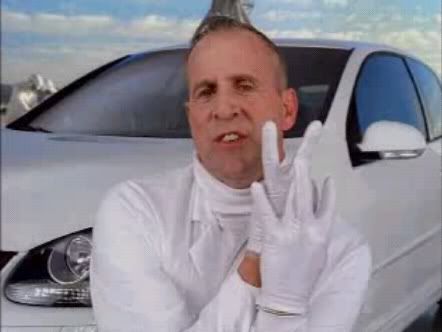TOP TEN HEADLINES IN THE BUSH ADMINISTRATION-APPROVED NEW NEW YORK TIMES
10. IRAQ MISSION DEEMED "COOL" BY JOINT CHIEFS: PENTAGON OFFICIAL
9. CHENEY SMILES BRIEFLY AT NEWS CONFERENCE; SHOWS WARM HUMAN QUALITIES MISSED BY MEDIA
8. RUMSFELD SPORTS NEW TIE AT BRIEFING; FIELDS COMPLIMENTS FROM REPORTERS AND TV CREWS
7. FIRST AMENDMENT ROLLBACK FINE WITH MOST VOTERS NOT DECLARED AS "ENEMIES OF THE PEOPLE"
6. PRESIDENT BUSH MAKES FUNNY REMARK IN OVAL OFFICE; DRAWS GENUINE LAUGHTER FROM STAFF
5. BUSH CLEARS LARGE AMOUNTS OF BRUSH FROM RANCH; OPERATION DEEMED "COMPLETE SUCCESS"
4. PRESIDENT'S SOCK DRAWER "NEAT AND ORGANIZED" SAYS TONY SNOW
3. SECRETARY OF STATE RICE WILL TRAVEL TO CALIFORNIA TO ASSIST MILITARY TAKEOVER OF SACRAMENTO
2. CIVIL LIBERTIES REPEAL DRAWS WIDE SUPPORT AMONGST REMAINING MEMBERS OF CONGRESS
And the number one headline in the Bush administration-approved New New York Times...
1. PRESIDENTIAL DOGS HAVE GOOD DAY IN ROMP ON SOUTH LAWN
Monday, July 24, 2006
Friday, July 14, 2006

Shine on you crazy diamond. Wish you were here.
***
Pink Floyd's Barrett dies aged 60
[BBC News]
Syd Barrett, one of the original members of legendary rock group Pink Floyd, has died at the age of 60 from complications arising from diabetes.
The guitarist was the band's first creative force and an influential songwriter, penning their early hits. He joined Pink Floyd in 1965 but left three years later after one album. He went on to live as a recluse, with his mental deterioration blamed on drugs.
"He died very peacefully a couple of days ago," the band's spokeswoman said. "There will be a private family funeral."
A statement from Pink Floyd said: "The band are naturally very upset and sad to learn of Syd Barrett's death. Syd was the guiding light of the early band line-up and leaves a legacy which continues to inspire."
David Bowie described Barrett as a "major inspiration", saying: "I can't tell you how sad I feel. The few times I saw him perform in London at UFO and the Marquee clubs during the '60s will forever be etched in my mind. He was so charismatic and such a startlingly original songwriter. Also, along with Anthony Newley, he was the first guy I'd heard to sing pop or rock with a British accent. His impact on my thinking was enormous. A major regret is that I never got to know him. A diamond indeed."
Born Roger Barrett in Cambridge, he composed songs including See Emily Play and Arnold Layne, both from 1967. He also wrote most of their album The Piper at the Gates of Dawn. But he struggled to cope with fame and drugs. Dave Gilmour was brought in to the band in February 1968 and Barrett left that April, releasing two solo albums soon after. The band's biggest-selling releases, Dark Side of the Moon and The Wall, emerged in the post-Barrett era, with the band selling an estimated 200 million albums worldwide.
Just as Pink Floyd were about to achieve global success, Barrett retreated from public life and returned to Cambridge. Little was known about his whereabouts for 20 years until he was tracked down living with his mother. But his influence remained, with younger fans and artists discovering his music.
Former Blur guitarist Graham Coxon released a statement saying: "Lost him again... for bang on 20 years Syd led me to better places. From my agape 17-year-old first listen to Bike to, just the other day, Jugband Blues. Languished in his noise... dreamt in his night... stared at his eyes for answers..."
Barrett's biographer Tim Willis said the guitarist's music left a lasting legacy. "I don't think we would have the David Bowie we have today if it wasn't for Syd," he told BBC Radio Five Live. Bowie was very much a kind of clone of Syd in the early years. His influence is still going. New bands discover him all the time. There's always a Syd revival going on - if it wasn't the punks, it was REM, and I'm sure that Arnold Layne and Emily Play as pop songs will live forever."
***
The Madcap Laughs Last
Syd Barrett, 1946–2006
by Barry Walters
July 14th, 2006 4:49 PM
[The Village Voice]
Pink Floyd themselves wrote the most fitting epitaph for their former singer and guitarist, Roger "Syd" Barrett, 31 years ago: "Wish You Were Here." Never has a departed musician weighed so heavily on his former bandmates—chunks of post-Syd Floyd classics Dark Side of the Moon and The Wall also bear his influence. No one could've imagined that the Pink Floyd Barrett ruled in the Cambridge band's early days would've become one of the most successful and enduring rock acts of all time. Barrett was arguably the first British pop star who fully refused to fake an obligatory American accent, and though the English public gave their immediate approval to some of the most radical pop records of that radical year 1967, in America those same records flopped.
Barrett's psychedelia was as particularly English as Harry Potter, and similarly magical. A lover of eyeliner and whimsy, the singer spewed some of the era's most savage guitar noise over and around his deceptively childlike lyrics: The BBC-banned first Floyd single "Arnold Layne" dared to celebrate a mischievous cross-dresser who stole his drag from washing lines, while the enchanting follow-up hit, "See Emily Play"—as well as "The Gnome," "Scarecrow," and other tracks from Floyd's first album, The Piper at the Gates of Dawn—similarly mixed innocence and subversion. For Barrett, the retreat from adulthood that psychedelia offered was particularly enticing: It's been speculated that the unexpected passing of his father when the future frontman was only 11 may have not only encouraged Barrett to seek lyrical refuge in the memories of happier days, but in part also inspired the mental illness that fully claimed him. "You were caught in the crossfire of childhood and stardom," Pink Floyd sang of him on "Shine on You Crazy Diamond."
Whether it was emotional fragility, LSD, schizophrenia, seizures induced by the band's trademark strobes, pressures induced by sudden stardom, or a more likely a combination thereof, Barrett, as many biographers have documented, soon lost the plot, and a year into the band's success was replaced by his close friend David Gilmour. Because he retreated from the spotlight so thoroughly so soon after the release of his 1970 solo albums The Madcap Laughs and Barrett, because Pink Floyd so routinely paid him homage in song, and because his small body of work so acutely documents a mind that occupies an alternative reality, Barrett has lived with the kind of legend befitting only the most celebrated of dead rock stars. And though he still lived, unlike kindred beleaguered soul Brian Wilson, he never bounced back: Until his July 7 death at age 60 from diabetes complications, Barrett lived in seclusion at his mother's Cambridge house with the windows boarded up to discourage curious fans.
Syd had many of those. If the first Nuggets collection documents an American generation of garage bands who wanted to be the Rolling Stones, then the second, UK-dominated Nuggets box erects a shrine to Barrett and his wannabes. Just as Gilmour's stadium-filling Pink Floyd inspired the original punks as a negative example, Barrett's example positively shined on the postpunks, and his much quieter but even more uneasy and unpolished solo work spurred subsequent indie followers. Although his own output is slim, his jagged rhythm guitar and detached bray spread like a psychedelic virus onto thousands of records. Barrett enchanted outcast souls much like Arnold Layne snapped up see-through baby-blue ladies' garments in the moonlight. They suit him fine.
***
Wish You Were Here sessions
[Excerpt from Wikipedia]
Syd Barrett had one noted reunion with the members of Pink Floyd, in 1975 during the recording sessions for Wish You Were Here. Barrett attended the Abbey Road session unannounced and watched the band record Shine On You Crazy Diamond — coincidentally, a song about him. At that time, Barrett had gained a lot of weight and had shaved off all of his hair, including his eyebrows, and his ex-bandmates did not at first recognize him (one of the photographs in Nick Mason's book Inside Out: A Personal History of Pink Floyd appears to have been taken that day; it is captioned simply: Syd Barrett, 5th June 1975). Eventually, they realized who he was and Roger Waters was so distressed that he was reduced to tears. A reference to this reunion appears in the film Pink Floyd The Wall (1982), where the character 'Pink,' played by Bob Geldof, shaves off his eyebrows after succumbing to the pressures of life and fame.
In an interview for VH1's Behind The Music, Rick Wright spoke about the session, saying: "One thing that really stands out in my mind, that I'll never forget; I was going in to the Shine On sessions. I went in the studio and I saw this guy sitting at the back of the studio, he was only as far away as you are from me. And I didn't recognize him. I said, 'Who's that guy behind you?' 'That's Syd.' And I just cracked up, I couldn't believe it... he had shaven all his hair off... I mean, his eyebrows, everything... he was jumping up and down brushing his teeth, it was awful. And, uh, I was in, I mean Roger was in tears, I think I was; we were both in tears. It was very shocking... seven years of no contact and then to walk in while we're actually doing that particular track. I don't know – coincidence, karma, fate, who knows? But it was very, very, very powerful." In another interview, Nick Mason has said: "When I think about it, I can still see his eyes, but... it was everything else that was different." In yet another interview, Roger Waters has said: "I had no idea who he was for a very long time."
Wednesday, July 05, 2006
I HATE STUPIDITY
My apologies to the Noelomite for ripping this from his blog, but it's just too utterly fucking retarded not to share with as many people as possible.

Could someone please explain to me how a badly-photoshopped picture of the JAPANESE flag planted on a MOON OF SATURN (Dione) with the shadow pointing THE WRONG FUCKING WAY ties in with a news story about CHINA planning to land on EARTH'S MOON (on which flags have been proven to cast shadows which point AWAY from the sun)?!
Nice going, AP/CBS. My lack of god. No wonder Dan Rather quit.
My apologies to the Noelomite for ripping this from his blog, but it's just too utterly fucking retarded not to share with as many people as possible.

Could someone please explain to me how a badly-photoshopped picture of the JAPANESE flag planted on a MOON OF SATURN (Dione) with the shadow pointing THE WRONG FUCKING WAY ties in with a news story about CHINA planning to land on EARTH'S MOON (on which flags have been proven to cast shadows which point AWAY from the sun)?!
Nice going, AP/CBS. My lack of god. No wonder Dan Rather quit.
Subscribe to:
Posts (Atom)
